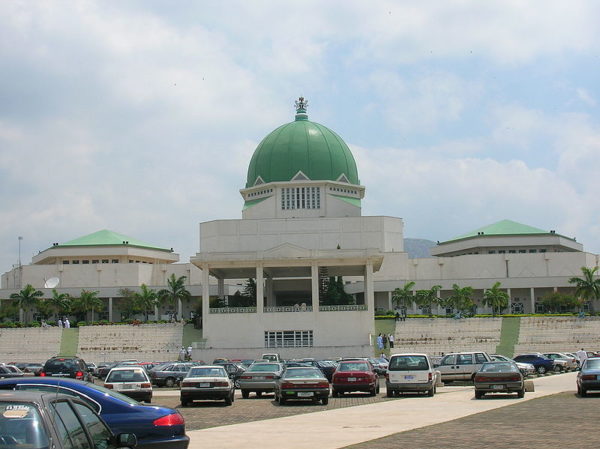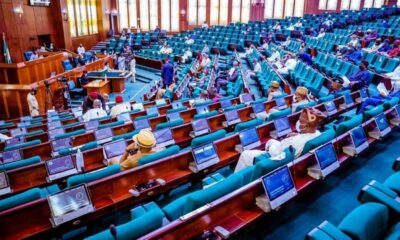News
National Assembly Transfers President’s Power in Controlling CCB & CCT to Itself
The National Assembly on Thursday removed and transferred the power of the President in controlling the Code of Conduct Bureau (CCB) and Code of Conduct Tribunal (CCT) to itself.
At the conclusion of work on the Bill to amend the CCB and CCT, the Assembly successfully altered section 18 (2) to enable the National Assembly to confer additional powers on the CCB instead of the President.
The Bill has stopped the President from enjoying the powers of exempting public officers from investigation and trial. Instead, it gave that power to the National Assembly.
Section 18 (1) of the existing Act reads: “The President may, by order, exempt any cadre of public officers from the provisions of this Act if it appears to him that their position in the public service is below the rank which he considers appropriate for the application of those provisions.”
Section 18 (2) of the existing Act provides that: “The President may, by order, confer on the Bureau such additional powers as may appear to him to be necessary to enable it to discharge more effectively the functions conferred upon it under this act.”
The Bill, initiated and first passed by the House of Representatives, was transmitted to the Senate for concurrence in May.
With the concurrence of the Senate with the house, the Bill will be pushed to the President for assent.
The Senate also agreed with the House that the appointment of chairman of the CCB be based on tenure of two terms of five years each.
The Bill reduces the tenure of the chairman of the Bureau and members from serving until they attain 70 years to a term of five years, subject to the confirmation of the Senate.
“The chairman and members shall serve for a term of five years subject to renewal for one further term.”
Section 20 (4) has made it mandatory that the appointment of the chairman and members of the CCT be subjected to the confirmation of the Senate.
Another significant amendment effected to the CCT/CCB Act is to make it compulsory for any case of breach or non-compliance to be brought to the notice of the person concerned.
“This is to enable him to make a written admission of such breach or non-compliance and where such is done, there shall be no reference to the tribunal.”
But the passage of the Bill witnessed the exchange of unpleasant words on the floor of the upper chamber.
Deputy President of the Senate, Ike Ekweremadu, who presided over the session, had to intervene to restore peace.
Contributing, Sen. Ahmed Lawan (APC – Yobe) described the Senate as “a moderator on legislation”.
“This bill emanated from the House of Representatives and our colleagues there passed it. I agree totally with the submissions of some of our colleagues that we don’t have to tarry to pass it. We will be doing ourselves and this national assembly a better service if we step down this thing and move on some other things that will make this a better bill, only when we convince ourselves that what we are trying to do is not for our sake.
I feel very passionate about this that whatever we feel about any situation that we are in, let’s make sure that that thing doesn’t get into us when we legislate for the sake of our people,” Lawan said.
Recall that the Senate had suspended amendment of the Act following public outcry as the amendment passed second reading on the Senate floor within 48 hours.
This was around the time the Economic and Financial Crimes Commission (EFCC) was presenting its case against the Senate President, Bukola Saraki in the CCT.
The Bill was later introduced in the House of Representatives and passed.
However, the president can veto any Bill if he/she does not agree with the amendments. He/she can send the Bill back to the National Assembly, stating areas he/she wants to be amended. The Bill will then be withdrawn for deliberation on the amendments suggested by the President.
If the National Assembly does not agree with the President’s amendments, it can overrule the President’s veto by recalling the bill and re-passing it. If two-third of the National Assembly vote in favour of the Bill after the Bill has spent 30 days with the President without his assent, the Bill automatically becomes law even without the assent of the President.




















